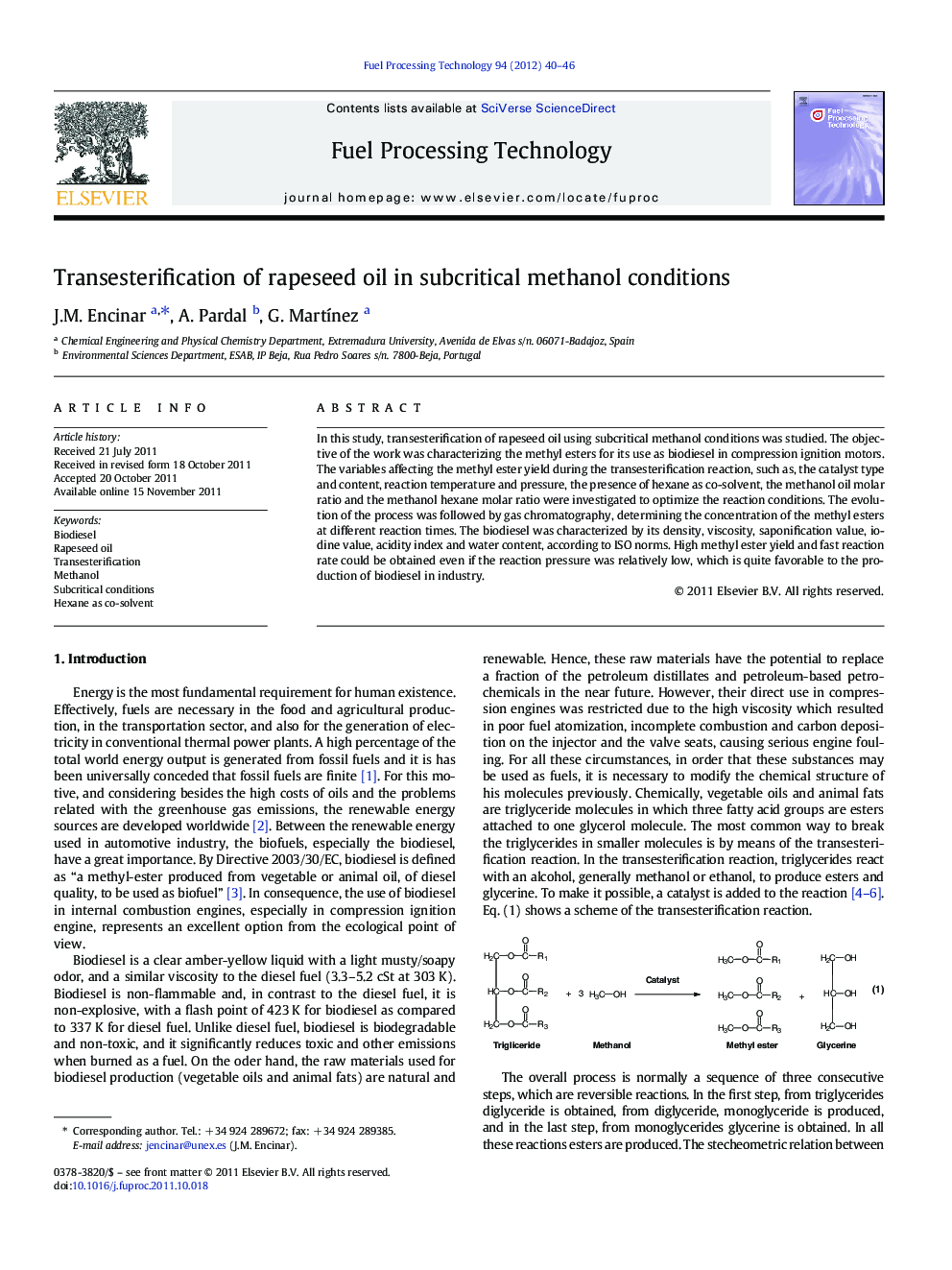| Article ID | Journal | Published Year | Pages | File Type |
|---|---|---|---|---|
| 210491 | Fuel Processing Technology | 2012 | 7 Pages |
In this study, transesterification of rapeseed oil using subcritical methanol conditions was studied. The objective of the work was characterizing the methyl esters for its use as biodiesel in compression ignition motors. The variables affecting the methyl ester yield during the transesterification reaction, such as, the catalyst type and content, reaction temperature and pressure, the presence of hexane as co-solvent, the methanol oil molar ratio and the methanol hexane molar ratio were investigated to optimize the reaction conditions. The evolution of the process was followed by gas chromatography, determining the concentration of the methyl esters at different reaction times. The biodiesel was characterized by its density, viscosity, saponification value, iodine value, acidity index and water content, according to ISO norms. High methyl ester yield and fast reaction rate could be obtained even if the reaction pressure was relatively low, which is quite favorable to the production of biodiesel in industry.
► Transesterification of rapeseed oil, using subcritical methanol conditions. ► Variables affecting the methyl ester yield during the transesterification reaction. ► Evolution of the process followed by GC. ► Biodiesel characterization, according to ISO norms. ► High yield and fast reaction could be obtained with reaction pressure relatively low.
